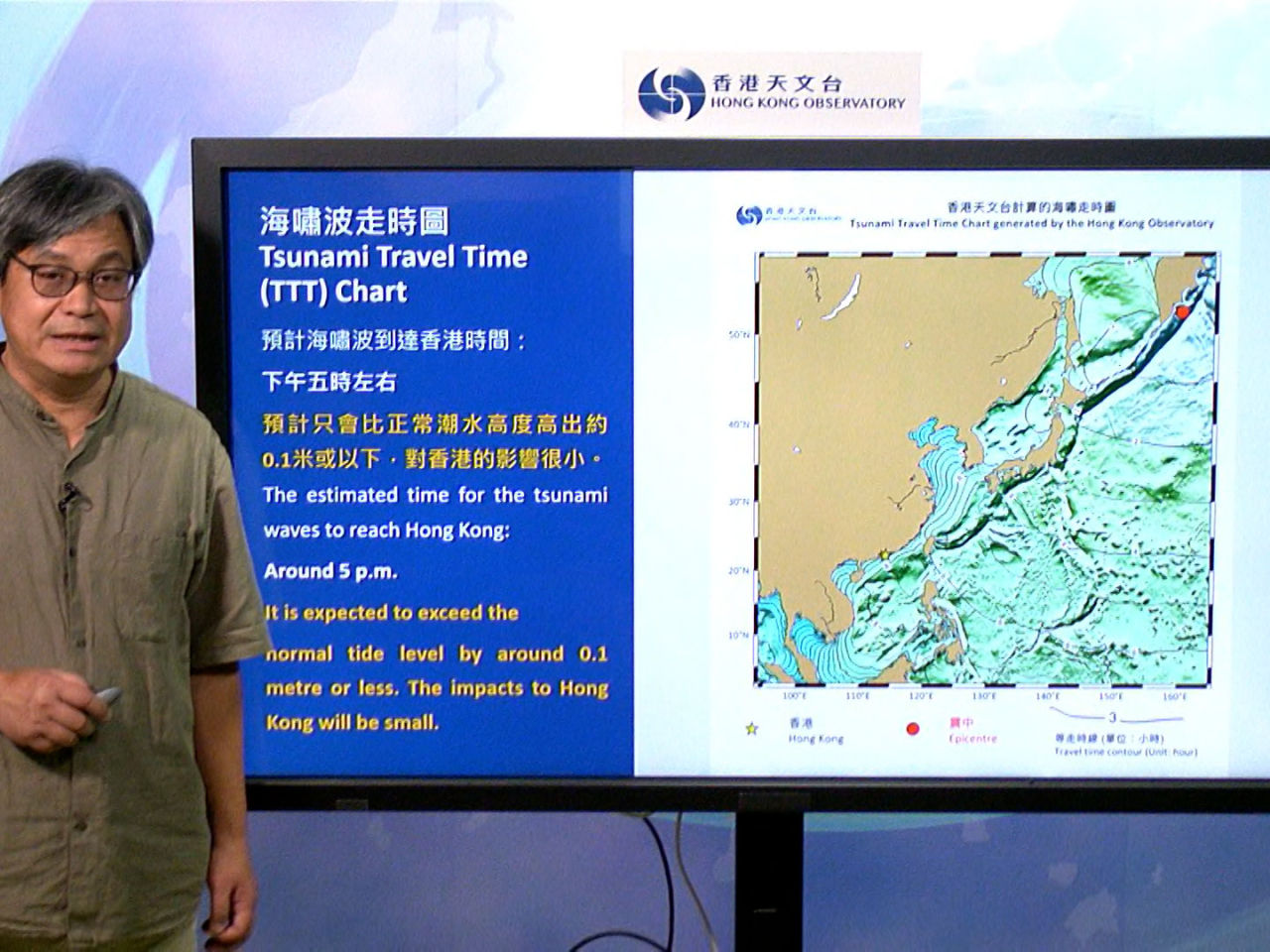Tsunami waves triggered by an 8.8-magnitude earthquake that hit Russia's Far East reached Hong Kong later on Wednesday but "were too low to be observed," the Hong Kong Observatory said.
Earlier, the Observatory said minor tsunami waves were expected to arrive here at 5pm and were not expected to have a major impact.
"The tsunami heights of the first couple of waves reaching Hong Kong were too low to be observed," it said in a later statement.
"Afterwards, the Observatory recorded a sea-level anomaly of around 7 centimetres at about 6.40pm at Shek Pik tide station, which was probably due to the arrival of subsequent tsunami waves."
Acting senior scientific officer Hui Tai-wai said it will not be the first time that minor tsunamis have been detected in Hong Kong.
“A similar case happened in 1952. At that time, a magnitude 9 earthquake occurred in Kamchatka, triggering minor tsunami waves in Hong Kong of 0.15 metres,” he said.
In Japan, Sendai Airport in Natori has stopped operating and its staff and travellers have been evacuated amid tsunami alerts.
HK Express announced that its flight UO890 from Hong Kong, which was scheduled to land at the airport, had to be diverted to Narita International Airport.
Another flight operated by the airline, UO891, that was supposed to fly from Sendai Airport to Hong Kong, has been cancelled.
Earth scientist Benjamin Horton said that immediate evacuation to higher ground is crucial once a tsunami warning is issued.
Horton, who is Dean of the School of Energy and Environment at City University of Hong Kong, said that large earthquakes are often followed by clusters of aftershocks.
He said while smaller in magnitude, these aftershocks can still be significant and exacerbate problems if they strike regions already destabilised by the initial quake.
"When an earthquake happens, you feel the shaking. We're all aware that that can cause buildings to collapse and cause other problems. But a tsunami is the after effects of it, and these are significant waves where commonly the first wave is not the biggest," he said.
"So you need education to know that once an earthquake's happened and you have a tsunami warning, you must go landward. You must find higher ground, but you should never return to the low-lying areas after the first wave because you have a wave that occurs several minutes or even hours later that is much, much larger.
"The evacuation is relatively simple. You get to higher ground, but then you must stay there for several hours until the warning has been reduced."
Horton also said that beyond tsunamis, major earthquakes can trigger landslides, damage infrastructure and cause flooding.
_____________________________
Last updated: 2025-07-30 HKT 21:29





